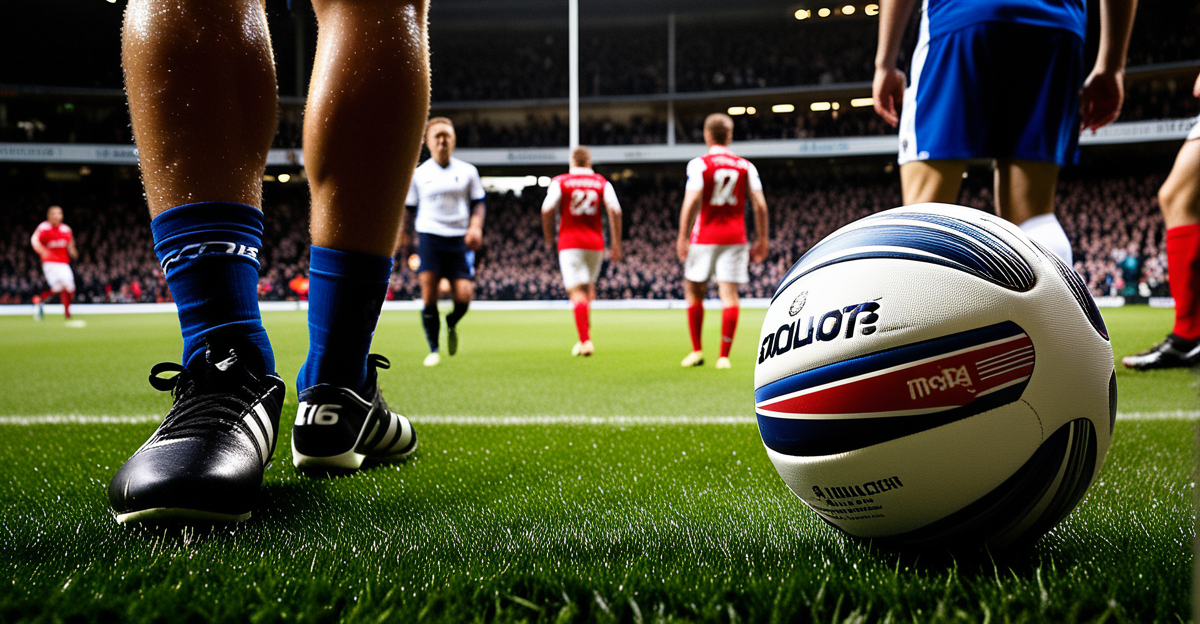Essentials of UK Sports Sponsorship Deals
Understanding the key factors in sports deals is crucial for brands aiming to enter or expand within the UK sports sponsorship arena. One of the foremost considerations is brand alignment and partner compatibility. A sponsoring brand must evaluate how its image and values mesh with those of the sports entity and its audience. This ensures authenticity, which resonates with fans and sustains long-term engagement.
When assessing potential partnerships, examining audience demographics and market reach plays a critical role. Successful UK sports sponsorships target demographics that align with a brand’s customer base or desired segment. Quantifiable insights about age, income, interests, and consumption habits of the sport’s fanbase help in tailoring messages and maximizing brand visibility.
In parallel : What role does sports psychology play in UK athletics?
Additionally, navigating the legal and regulatory requirements is fundamental. UK sports sponsorship deals often involve complex contracts with stipulations about advertising standards, exclusivity, and ethics compliance. Recognizing these legal parameters protects both brands and sports organizations, ensuring sponsorships are executed without regulatory breaches and reputational risks.
These essentials—brand compatibility, audience evaluation, and legal compliance—create a robust foundation for fruitful brand partnerships UK. They enable sponsors to optimize their investments, enhancing brand loyalty and market presence in a competitive sports ecosystem.
Also to read : What Are the Essential Skills for Prospering in UK Sports?
Structuring Sponsorship Packages
Understanding the sponsorship package structure is essential for crafting effective UK sports sponsorship deals. Packages typically bundle various rights, assets, and deliverables that define what sponsors receive in exchange for their investment. These can include logo placement, naming rights, hospitality opportunities, and digital content use.
In UK sports sponsorship deals, clearly outlining sponsorship rights helps manage expectations and protects both sponsors and rights holders. For example, rights might cover media exposure, merchandise branding, or access to athletes. Defining these aspects reduces ambiguity and establishes measurable benefits for sponsors.
Obligations for sponsors often involve financial commitments, activation of sponsorship presence, and adherence to agreed brand guidelines. Rights holders, meanwhile, must ensure the delivery of promised assets and maintain compliance with legal and regulatory frameworks. This mutual responsibility underpins strong brand partnerships UK relies upon, ensuring both parties maximize the sponsorship’s impact.
Effective structuring balances sponsor needs with the sports entity’s capacity, fostering sustainable, win-win relationships in the competitive arena of UK sports sponsorship.
Activation Strategies for Sponsorship Success
In sports sponsorship strategies within the UK, activation plays a critical role in converting sponsorship agreements into tangible brand engagement. Simply securing a sponsorship is not enough; activation turns investment into customer interaction and loyalty, making it vital in any sponsorship activation UK approach.
A primary focus in sports sponsorship strategies is the use of digital channels. These platforms enable sponsors to reach broader and more targeted audiences efficiently. By leveraging social media, mobile apps, and streaming services, brands can create dynamic content, interactive campaigns, and real-time fan experiences, all tailored to UK audiences that are digitally savvy and highly engaged with their sports teams and events.
Beyond digital, experiential marketing is another powerful activation tactic. This involves immersive fan experiences at events, such as branded hospitality areas, meet-and-greets with athletes, and interactive fan zones. These direct interactions foster emotional connections between the brand and consumers, enhancing recall and loyalty far beyond traditional advertising.
Effective sponsorship activation UK also requires innovation and creativity to stand out in a crowded marketplace. Sponsors that combine technology, storytelling, and fan culture can increase visibility and deepen relationships with loyal sports communities. By continually adapting activation tactics to evolving consumer behaviors, brands sustain momentum and maximize their sponsorship’s impact.
Measuring and Maximising Sponsorship ROI
Measuring sponsorship ROI UK is essential for understanding the effectiveness of sports investments. Brands often start by defining clear objectives aligned with their overarching marketing goals. This might include increasing brand awareness, driving sales, or enhancing brand loyalty within specific demographics. Precise goal-setting enables relevant benchmarking to assess sponsorship success accurately.
Common metrics used for evaluating sponsorship value include media exposure quantified through impressions, engagement rates on digital platforms, and sales lift attributable to the sponsorship period. Additionally, qualitative measures such as brand sentiment analysis and fan feedback provide valuable insights into the sponsorship’s impact on consumer perception.
Advanced tools leverage data analytics to track and attribute outcomes directly linked to sponsorship activities. For example, digital tracking codes and social listening platforms offer real-time evaluation of fan interaction and activation success. Regular review of these metrics allows sponsors to adjust their sports investment approach dynamically, optimizing budget allocation and activation strategies for ongoing improvement.
By continuously measuring and refining their approach, brands maximize the returns from UK sports sponsorships, ensuring long-term value and stronger brand partnerships UK. This iterative process helps transform initial investments into sustainable competitive advantages across sporting audiences.
Key Terms and Exclusivity Provisions
Exclusivity is a critical element in UK sports sponsorship contracts, often deeply influencing the value and scope of the partnership. Typically, exclusivity clauses grant the sponsor sole rights within their industry category, preventing competitors from activating similar sponsorships with the same sports entity. This exclusivity ensures brand exposure is not diluted and provides a competitive advantage by associating the brand uniquely with the sport or event.
Negotiating favourable sponsorship agreement terms requires clear definition of exclusivity boundaries. For instance, exclusivity might pertain only to certain products or services, or it may be time-limited to specific events or seasons. Brands and rights holders must carefully balance exclusivity’s benefits against potential revenue sacrifices from other sponsors. Flexible terms can accommodate multiple sponsors while preserving meaningful exclusivity for primary partners.
The impact of exclusivity on brand partnerships UK is substantial. It can elevate a brand’s association with a sport, enhancing consumer recall and loyalty. However, overly restrictive exclusivity clauses may hinder collaboration opportunities and reduce the rights holder’s capacity to maximize sponsorship income. Therefore, expert legal and commercial input is essential when drafting or negotiating these UK sponsorship contracts to align exclusivity provisions with strategic and financial objectives.
Case Studies: Effective UK Sports Sponsorships
Exploring UK sports sponsorship case studies reveals valuable insights into how well-executed partnerships drive success. For example, leading football sponsorships often showcase deeply integrated activations, blending media presence with fan experiences. These partnerships typically leverage the sport’s massive audience reach and passionate fanbase to maximize brand engagement and deliver strong commercial returns.
In rugby and cricket, innovative sponsorships emphasize community involvement and heritage. These partnerships combine traditional activation with emerging digital strategies, appealing to both longtime supporters and younger demographics. Such deals often include bespoke hospitality packages, exclusive content, and athlete collaborations—elements that heighten emotional connections and enhance brand partnerships UK.
Conversely, studying failed sponsorship arrangements highlights common pitfalls. These include misaligned brand values, inadequate audience research, and insufficient activation planning. Failure to meet contractual obligations or to adapt sponsorship strategies as the market evolves can also significantly diminish return on investment. Learning from these challenges enables brands and rights holders to refine future deals, ensuring sponsorships are both authentic and impactful.
Overall, examining successful and unsuccessful cases provides expert insights into what drives effective UK sports sponsorship, supporting smarter decision-making and more dynamic partnerships.








